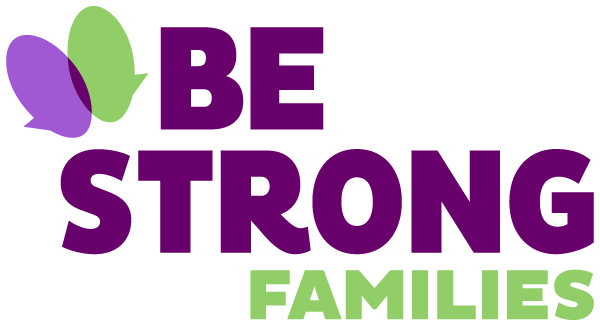What to Do When You Have Negative Feelings Toward Your Emerging Adult
Feelings like frustration, resentment, and disappointment—and yes, even hatred—toward your emerging adult is to be expected and a natural occurrence during parenthood. Unfortunately, this is an issue that is under-addressed in parenting advice or discussions and precisely why parents are reluctant to express such negative feelings out loud.
So, what can you do about these feelings? First, you must admit to yourself that you have negative feelings toward your emerging adult. It is helpful to face your feelings and let go of unnecessary guilt; experiencing negative feelings toward your emerging adult doesn’t make you a bad parent.
Often, our children may demonstrate behavior that is defiant, disrespectful, contrary to our values, and/or embarrassing to us at any age. These behaviors trigger a natural reaction to the inappropriate behavior in parents, especially if your emerging adult is particularly argumentative or not living up to your expectation of who you want them to be.
If you’re reading this, it’s probable that you want to get to a place where you don’t hate your emerging adult. It is beneficial to realize that getting angry doesn’t help motivate your emerging adult to change. On the contrary, your expressions of dissatisfaction and disapproval won’t facilitate change, these expressions act as a barrier to change. Your emerging adult is dealing with age-specific struggles such as academic and professional pressures, striving for financial independence, and relationship issues. Most emerging adults are working toward change and discovering their own identity outside of the family.
First, you need to acknowledge or confront these feelings—don’t act on them! Remember, anger is a legitimate emotion; it’s okay to feel angry, but acting on it does not help. Then work to accept your emerging adult for who he or she really is. How do I get to this place of acceptance? Part of working toward a level of acceptance is understanding why I don’t like my child. For example, is it because their behavior is contrary to your beliefs and values? Is the reason surrounding the existing tension about a basic personality conflict? Is it their limitations or deficits that ignite negative feelings? Awareness and acknowledgement of the core reasons will offer insights that will lead to gaining a level of acceptance and finding the empathy and compassion needed to support your emerging adult and collaboratively work together to problem solve.
Then you must work on you. Even though it is difficult to let go of old parenting habits that aren’t working, you as the parent must try. Attempt to be in the moment of parenting—this is what I call present parenting. Stay focused on the present issue and try to refrain from bringing up past negative events into the current situation. For an emerging adult, this is like paying for the same crime repeatedly. Refrain from lecturing or bringing up “when I was your age” which minimizes your emerging adult’s personal experience. Alternatively, this communication should be an exchange; a mutual, co-created conversation, not a confrontation. It is important to listen with a non-judgmental ear and allow your emerging adult to review options for solutions with you. This will model a more supportive, compassionate, and empathetic approach that fosters independence. When it comes to parenting, we get what we give. Responding with respect and avoiding reacting with anger, disappointment, and disapproval will give your emerging adult the message that you only want to help them reach their goals. Remember as parents, it’s our job to help them transition to adulthood with confidence, independence, and resilience.
Be the best parent you can be in the moment—not some idea of the parent you think you SHOULD be. This puts unnecessary pressure on you as the parent and then contributes to the cycle of conflict, anger and negative feelings toward your emerging adult. Try getting to know him or her better or through a different lens like focusing on his or her strengths not weaknesses. Spend time engaging in a mutually enjoyable experience that may help to repair past ruptures in your relationship.
If you are really struggling to overcome your negative feelings toward your emerging adult and find yourself reacting with anger more frequently than not, it may be time to reach out for help. Many faith-based organizations have community resources such as parent support groups and offer spiritual counseling. Additionally, a mental health professional will work with the parents and emerging adults to identify any underlying mental health issue, mediate conflicts, and address communication issues.
Self-care is a vital component of healthy parenting. What are you doing just for you? Take the time to engage in activities that bring you joy. Remember you can’t fill anyone’s cup if your cup is empty. Taking time for yourself is a necessity not a luxury. We all need time to recharge and rejuvenate which will help you relieve stress and be a stronger parent.
Article by: Phyllis Alongi, Licensed Professional Counselor, NCC, LPC, ACS
Resources
The Family-Institute is a parent friendly website containing several articles from experts on a variety of parenting issues, such as the linked article on raising an emerging adult.
The Jed Foundation is a comprehensive website specifically designed for emerging adults. The content includes articles, viable resources and interviews pertaining to the issues specific to emerging adults.
National Institute of Mental Health: Working to transform the understanding and treatment of mental illnesses, NIMA’s website provides guides and brochures directed at parents.
Empowering Parents is a viable web-based resource for parents of emerging adults regarding setting boundaries, fostering independence, and healthful ways to make the transition to adulthood a smoother one.
